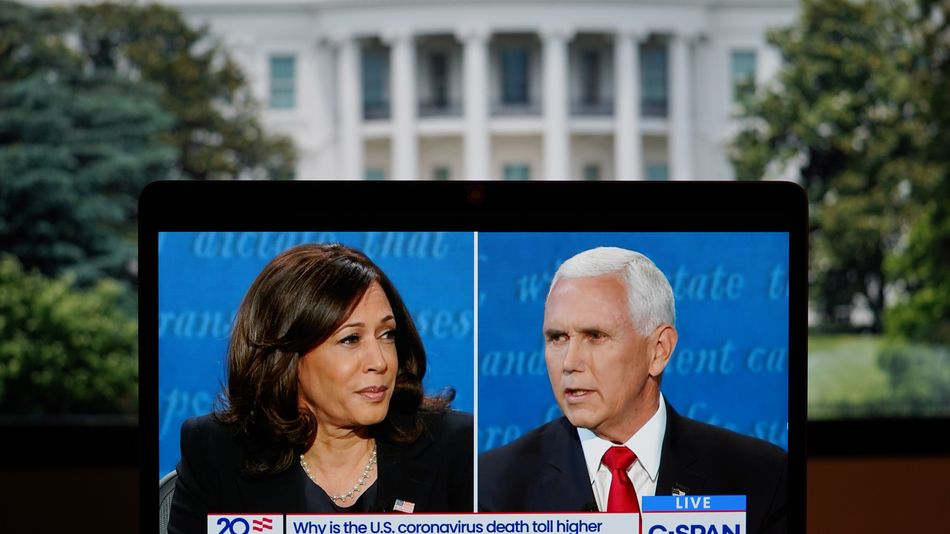Technology
5 questions Americans asked Google about the election this week (Oct. 2-9)


The U.S. presidential election is only 25 days away, so we’re keeping tabs on the most-searched election questions of each week.
Amid the chaos surrounding President Donald Trump’s COVID-19 diagnosis and the vice presidential debate on Oct. 7, we asked Google what people’s most pressing questions were.
The company sent us some of the most commonly searched queries between Oct. 1 and Oct. 8 in the United States.
1. What is the 25th Amendment in simple terms?
This amendment to the U.S. Constitution lays out the procedures in the event the president dies, resigns, can’t perform their duties, or is removed from office. It was a hot topic in the wake of Trump’s weekend in the hospital.
The 25th Amendment goes into detail about how exactly the president would be removed if he become incapacitated. Unless Trump invoked the amendment himself, as former President George W. Bush did in 2002 when he underwent a colonoscopy, this process could be invoked by the vice president and a majority of Trump’s cabinet members, according to the AP.
They would have to submit in writing that they believe Trump is unfit or unable to carry out his presidential duties, at which point Congress would vote on the matter. If passed by a two-thirds majority in the Senate and House, the role of president would be filled by Pence.
2. What kind of helicopter is Marine One?
Marine One is the call sign of the helicopter used by the U.S. Marine Corps to transport the president of the United States. Trump was flown by Marine One to Walter Reed Medical Center on Oct. 2 after his COVID-19 diagnosis.
Currently, Marine One can be any one of a fleet of VH-3D and VH-60N helicopters from Sikorsky, according to Popular Mechanics. They’ll eventually be replaced by the company’s VH-92A helicopters.
3. What happens if the president dies?
The U.S. lays out the first four people in the line of succession as vice president (Mike Pence), speaker of the House (Nancy Pelosi), president pro tempore of the Senate (Chuck Grassley), and secretary of state (Mike Pompeo).
But if Trump were to die before the election took place in 25 days, or after he won reelection but before his second term started, it becomes uncharted territory, as the AP explains. If he were to die before the election, the GOP could technically name a new candidate, but it would be incredibly messy so close to Election Day with voting already underway. In the case of death after reelection, the 20th Amendment states that if the president-elect dies, the vice president-elect is sworn in at the start of the new term.
However, a candidate doesn’t become president-elect unless Congress confirms the Electoral College votes, which is scheduled by law for Jan. 6. If the winning candidate died before this date, electors would have to decide how to vote. While some states have laws requiring their electors to vote for the candidate who won that state’s popular vote, not all do.
The Supreme Court has ruled that states do have the right to require their electors to vote in line with the candidate picked by the majority of the state’s voters, but did not explore what happens if that candidate dies. Short answer? It would be a mess, folks.
4. What are mild COVID symptoms?
Oh, right. Then there’s the pandemic. Beyond the president’s diagnosis and the White House’s claims that Trump’s symptoms were mild, us regular folks need to know what to look out for. One thing that makes the coronavirus so hard to contain is how varied the severity of symptoms is, ranging from a cough and headaches to extreme difficulty breathing, which can lead to pneumonia.
5. What percentage of police officers in the U.S. are women?
After months of protests over police brutality, Americans are wondering about police gender distribution. According to a , only 12.6 percent of police officers in the United States are women.
-

 Entertainment7 days ago
Entertainment7 days agoWhat Robert Durst did: Everything to know ahead of ‘The Jinx: Part 2’
-

 Entertainment6 days ago
Entertainment6 days agoThis nova is on the verge of exploding. You could see it any day now.
-

 Business6 days ago
Business6 days agoIndia’s election overshadowed by the rise of online misinformation
-

 Business6 days ago
Business6 days agoThis camera trades pictures for AI poetry
-

 Business7 days ago
Business7 days agoCesiumAstro claims former exec spilled trade secrets to upstart competitor AnySignal
-

 Business5 days ago
Business5 days agoTikTok Shop expands its secondhand luxury fashion offering to the UK
-

 Business6 days ago
Business6 days agoBoston Dynamics unveils a new robot, controversy over MKBHD, and layoffs at Tesla
-

 Entertainment6 days ago
Entertainment6 days agoEarth will look wildly different in millions of years. Take a look.






















